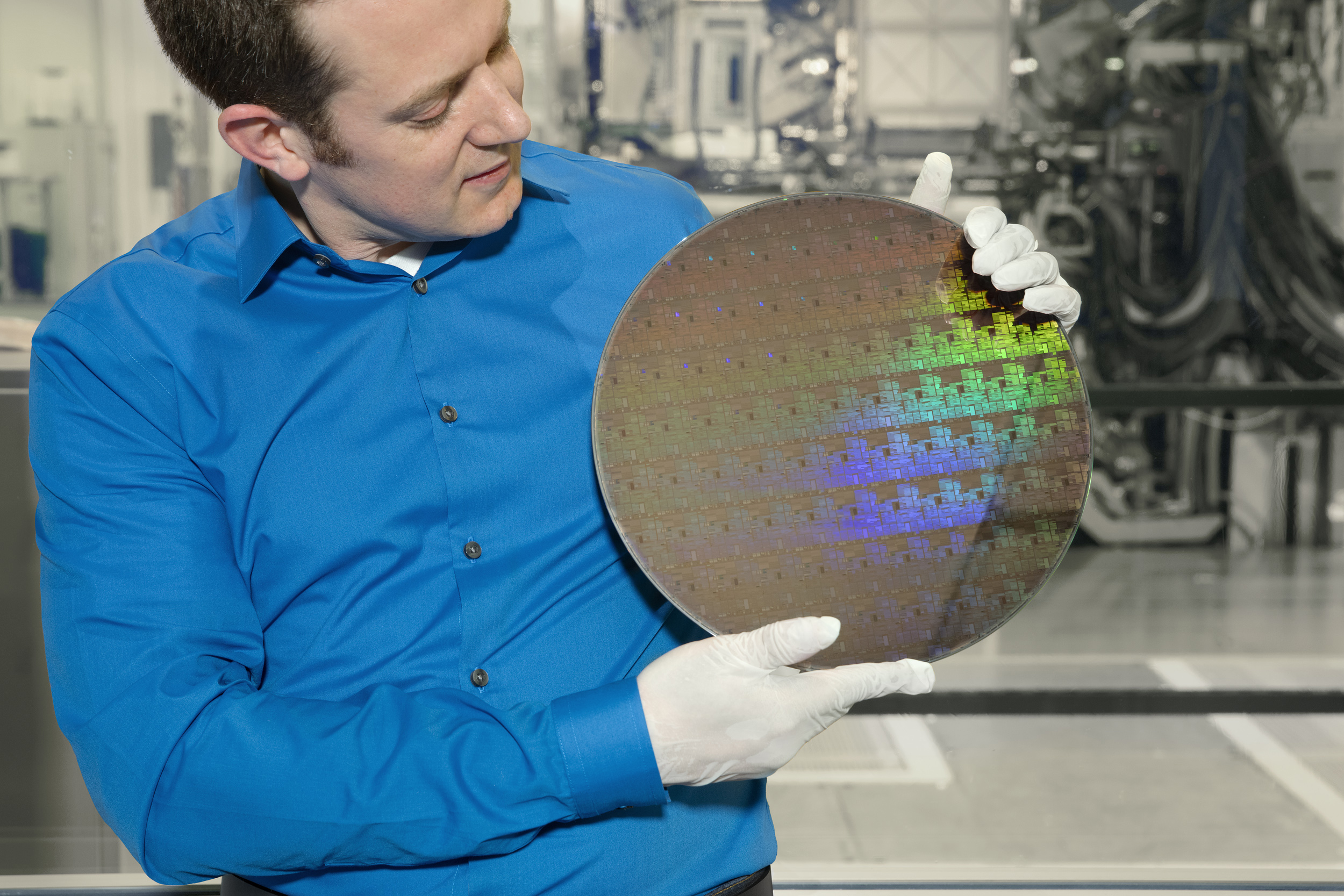Samsung breaks ground in extreme ultraviolet processor tech
Believes it will help it aid in its focus in state-of-the-art semiconductors

Samsung has touted a breakthrough with extreme ultraviolet (EUV) processor frabrication technology, which it believes will aid in its focus on state-of-the-art semiconductors.
Taking place in Hwaseong, Korea, the breakthrough in EUV tech means Samsung will "be able to strengthen its leadership in single nanometer process technology" by responding to market demand from various applications, including mobile, server, network, and high performance computing (HPC),all things that Samsung beleive need high performance and power efficiency.
The firm said it decided to use EUV technology starting with its 7-nanometer (nm) Low Power Plus (LPP) process, which will be set up with EUV lithography equipment to overcome nano-level technology limitations.
Extreme ultraviolet is an advanced technology for making microprocessors a hundred times more powerful and thus much more efficient than those made today. Microchips are made with etched circuit lines smaller than 0.1 micron in width compared to today's circuits that are generally .18 micron or greater.
A microprocessor made with the EUV technology would also be able to store 1,000 times more information than they can today. It works by burning intense beams of ultraviolet light that are reflected from a circuit design pattern into a silicon wafer.
Construction of the EUV tech along with its new production facility is expected to be completed within the second half of 2019 and start production ramp-up in 2020, Samsung said, which will "aim to maintain the leadership in cutting-edge process technology under 7nm".
The initial investment in the new EUV line is projected to reach $6 billion by 2020 and additional investment will be determined depending on market circumstances.
Get the ITPro daily newsletter
Sign up today and you will receive a free copy of our Future Focus 2025 report - the leading guidance on AI, cybersecurity and other IT challenges as per 700+ senior executives
"With the addition of the new EUV line, Hwaseong will become the centre of the company's semiconductor cluster spanning Giheung, Hwaseong and Pyeongtaek in Korea," said Samsung Electronics' President & CEO of Device Solutions, Kinam Kim.
"The line will play a pivotal role as Samsung seeks to maintain a competitive edge as an industry leader in the coming age of the Fourth Industrial Revolution."
-
 AI is helping bad bots take over the internet
AI is helping bad bots take over the internetNews Automated bot traffic has surpassed human activity for the first time in a decade, according to Imperva
By Bobby Hellard
-
 Two years on from its Series B round, Hack the Box is targeting further growth
Two years on from its Series B round, Hack the Box is targeting further growthNews Hack the Box has grown significantly in the last two years, and it shows no signs of slowing down
By Ross Kelly